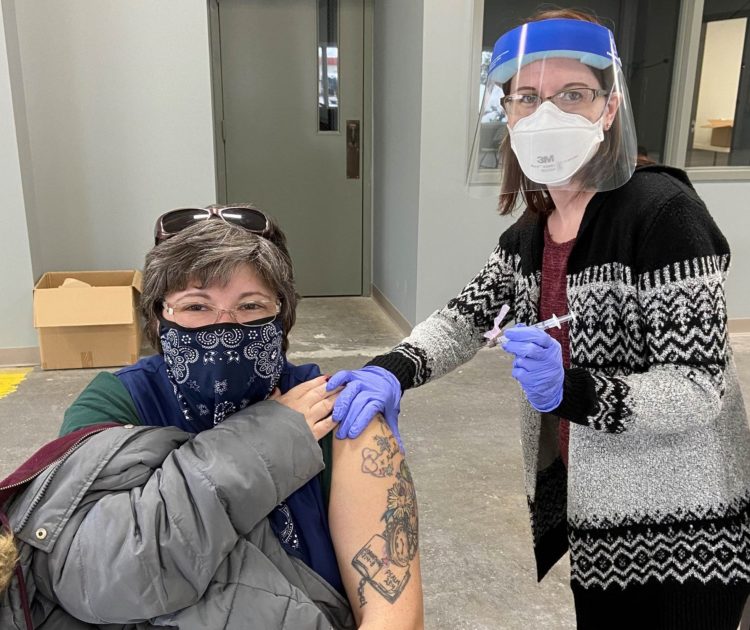After your child has been diagnosed with a mental health disorder and/or addiction, you might worry about whether you can cope with the challenges of his or her care. Even with a roadmap for treatment, adjusting to a new routine may be stressful. As you adapt to the situation, you can help your child manage life with mental health or addiction issues and take care of yourself.
Caring for Your Child at Home
Learn as much as possible about your child’s condition to more fully understand it; talk to their doctor if you have any questions. In the first stages of a diagnosis, you can stabilize your home life in the following ways:
- Create structure – Keep track of appointments, attend them with your son or daughter, and manage any of their medications. If your child is recovering from an addiction, remove common household substances they can ingest or “huff” to try to get high. These may include items that contain alcohol and other chemicals, such as spray dusters, food extracts, and paint thinner. If you have medications, drink or use other drugs, keep them hidden and/or under lock and key.
- Set expectations – Accept that your child might not go back to the way her or she was. Instead, focus on appreciating how your child’s diagnosis makes them special. Seek to understand rather than to “fix.” Judging your child’s behavior, which their condition can affect, may lead to anger and other negative emotions. Empathizing with them can increase your patience. As with any son or daughter, you may need to use discipline when necessary. It’s possible to do so in a loving way, through encouragement, such as telling them if they haven’t finished their chores how proud you are of their progress.
- Keep talking – Practice techniques for effective communication. For example, instead of asking why your child doesn’t like to take medication, which can come across as judgmental, ask how you may make the process better or what you can do to improve it. Help your child cope with symptoms by listening, and try to broaden your awareness. If they hear voices or see scary monsters, believing those accounts rather than judging them can strengthen your bond and reduce their fear or anxiety.
Supporting Your Child at School
Your son or daughter may behave differently in class. They could also not be getting the support they need in class. To find out more about the services your child can receive and to inform school officials of the diagnosis, meet with a guidance counselor, social worker, nurse or psychologist, or other appropriate person at the school. Talk to your child’s teachers to assess how they behave in school and how their condition affects them there. If you find it tough to discuss sensitive issues, bring a counselor or another family member for support.
You may also have to advocate for your child’s education. Per the federal Individuals with Disabilities Education Act (IDEA) and other laws, children with mental illness have special educational needs that public schools must meet. If the school can’t provide enough support to help your child progress in their learning, you can request an evaluation for special education services or changes to the existing program.
Advocating for Your Child in Therapy
If your minor child must attend counseling sessions regularly, go with them to stay informed and to report on their progress. While you won’t be able to attend sessions if your child is 18 or over, do your best to keep the lines of communication open and stay informed.
Without any outside help, caring for your child can become overwhelming, especially if they suffer a relapse or regression in their behavior or condition. If you need help, youth services such as school-based counseling, 24/7 crisis support, and psychotherapy can ease the path ahead. If an existing program isn’t working, talk to your child about what they find helpful about the treatment they receive and adjust as necessary.
Caring for Yourself
While you support your son or daughter, you may experience stress, anxiety, or depression. This is not to be unexpected, and can manifest through symptoms such as insomnia, aches and pains, and indigestion. Caring for a child with mental illness and/or addiction is a learning process. Keep things in perspective and accept your imperfections. If you get upset or if things go wrong, don’t judge yourself harshly and think of the positive steps you can take next time.
To support your child properly, you must also care for yourself. A healthy routine includes:
- Eating a balanced diet
- Avoiding drugs and alcohol
- Exercising, which can relieve stress and boost your mood
- Practicing relaxation or mindfulness techniques, such as yoga and meditation
- Sleeping at least seven to nine hours nightly
- Meeting with friends or loved ones to talk regularly
Involving your child in these practices can also help them adapt and reinforce positive lifestyle habits.
Despite your efforts, you may still face some difficulties. Among the services Citizen Advocates provides is support for parents who struggle to care for a child with behavioral health or addiction issues. With the increased need for treatment due to COVID-19, we also offer tele-mental health services.


 Previous Post
Previous Post


